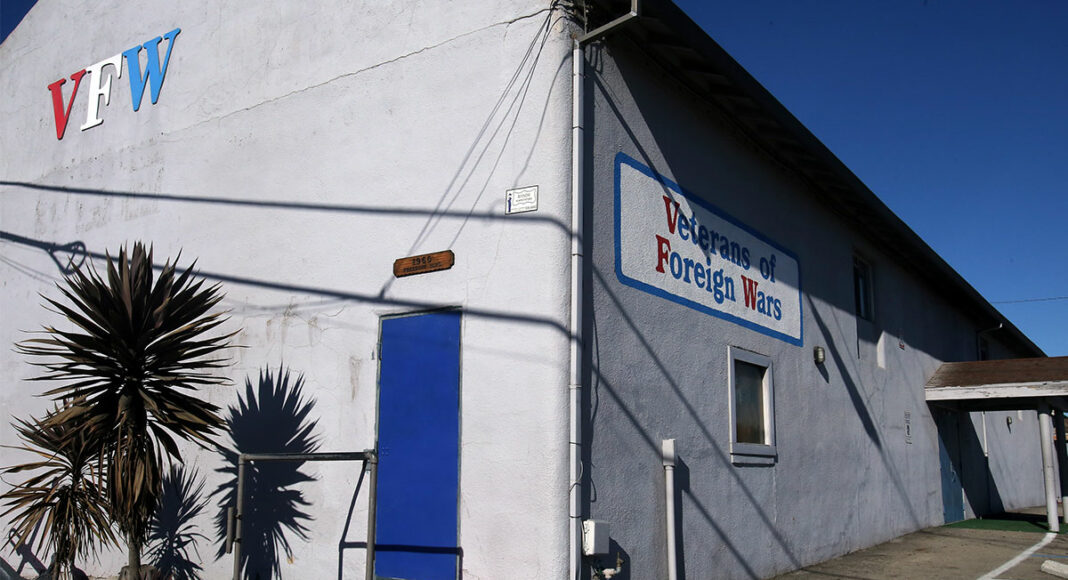At their core, Veterans of Foreign Wars halls and American Legion centers are places where former military members can gather and find the camaraderie and a shared bond unique to their life experiences.
“It’s a big part of what they consider their mental health treatment,” said State VFW Adjutant/Quartermaster Rodger Meier.
But the halls are much more than that.
Many also offer services such as helping with Veterans Affairs claims and survivor benefits, in addition to serving as a staging area for volunteer efforts.
According to Meier, members gave more than 90,000 volunteer hours in 2019, the equivalent to nearly $2.8 million in time and money.
Funds raised by the centers also go to scholarships and to emergency funds for military families.
But thanks to Covid-19 restrictions—and a set of rules imposed by Gov. Gavin Newsom that classifies the centers as bars and therefore requires them to close—many have spent the past nine months shuttered.
That has left veterans without their community gathering places, and the centers without the revenue needed to pay their bills.
“It’s pretty bad right now. We just don’t have the funds,” said Rick Sanchez, Commander of American Legion Post 121, located in Watsonville.
In a normal year unmarred by pandemic, Sanchez says the center is home to breakfasts on Sunday, hamburger night on Monday and pool tournaments on Friday and Saturday. All of these generate revenue that help pay the estimated $2,300 in monthly bills, in addition to annual property tax.
In a Sept. 21 letter, VFW State Commander John Lowe asked Newsom to reconsider the classification, thus allowing VFW centers to resume activities that benefit veterans, even if it means adhering to social-distancing rules.
“What is not being considered is that many of our posts are not just halls with bars, but rather hubs within our communities providing a wide range of essential programs and services to help veterans of every generation,” Lowe says.
VFW Post 1716 Commander David Ambriz says that the facility depends entirely on revenue from hosting events such as weddings, baptisms and quinciñeras.
The last event, Ambris says, was in February, just before the Covid-19 closures began.
Ambriz says that a $2,000 grant from the national VFW organization has helped, and he is hoping a second grant comes soon. But with bills for water, electricity, sewer, garbage and phone due every month, Ambriz and leaders like him across the U.S. are hoping that relaxing the rules will allow revenue-generating activities to commence.
U.S. Army veteran and former Watsonville City Councilman Felipe Hernandez says that a wedding can bring in as much as $3,000 in a single night.
“It’s an important place for veterans in the community because it’s a place where they can find someone with like minds,” Ambriz says. “They just want to socialize, and now that’s all gone. We just want to see our place opened up again.”













